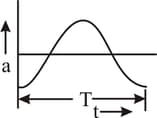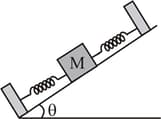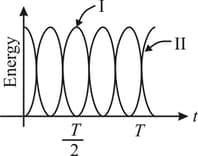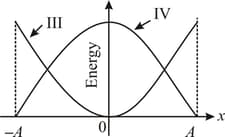Embibe Experts Solutions for Chapter: Simple Harmonic Motion, Exercise 2: Exercise-2
Embibe Experts Physics Solutions for Exercise - Embibe Experts Solutions for Chapter: Simple Harmonic Motion, Exercise 2: Exercise-2
Attempt the practice questions on Chapter 19: Simple Harmonic Motion, Exercise 2: Exercise-2 with hints and solutions to strengthen your understanding. Alpha Question Bank for Medical: Physics solutions are prepared by Experienced Embibe Experts.
Questions from Embibe Experts Solutions for Chapter: Simple Harmonic Motion, Exercise 2: Exercise-2 with Hints & Solutions
A block of mass is resting on a piston which is moving vertically with a SHM of period . The minimum amplitude of motion at which the block and piston separate is: (Take )

A point particle of mass is executing S.H.M. of amplitude of When the particle passes through the mean position, its kinetic energy is The equation of motion of this particle when the initial phase of oscillation is can be given by
Acceleration versus time graph of a body in SHM is given by a curve shown below. is the time period. Then corresponding graph between kinetic energy and time is correctly represented by,

On a smooth inclined plane, a body of mass is attached between two springs. The other ends of the springs are fixed to firm supports. If each spring has force constant , the period of oscillation of the body (assuming the springs as massless) is

The displacement of a linear harmonic oscillator is given by The curves showing the variation of the potential energy with and (see figure) are displayed respectively by:


The mass shown in the figure oscillates in simple harmonic motion with amplitude The amplitude of the point is

Assertion: In a compound pendulum, if the suspension point and centre of oscillation are mutually interchanged, then no change in a time period is obtained.
Reason: Length of the equivalent simple pendulum remains same in both the case.
Assertion: In SHM, the motion is to and fro and periodic.
Reason: Velocity of the particle, (where is displacement)
